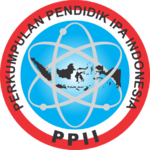SCIENTIFIC LITERACY OF COVID-19 IN THE FIRST YEAR PANDEMIC: DESIGN AND DEVELOPMENT TEST
DOI:
https://doi.org/10.26740/jppipa.v6n1.p48-55Keywords:
Covid-19, scientific literacy, instrument design, validity, reliabilityAbstract
Scientific literacy skills about the plague were needed during the Covid-19 pandemic. Students who previously studied at school now have to spend a lot of time at home studying. They are then primarily very dependant on the internet to get valuable information of academic purposes. However, concerns arise that massive access to information online has created problems with understanding Covid-19 which eventually may risk their attitude. Therefore, this study aims to analyze scientific literacy of students against the ongoing outbreak in terms of the contents. The research employs ADDIE model due to its compactness towards its process. The stages reflect the process of developing, studying, and implementing contagion literacy assessment products for junior high school students. The instrument design procedure consisted of literature study, development of test items, internal validation, and pilot project. The feasibility will be reviewed from the results of the validity and reliability. The data to be collected in this research are quantitative and qualitative data related to the validity and reliability. The results of the face validity test from three experts show that the questions arranged in the literacy instrument are considered valid with minor revision in terms of materials and construction. The pilot project, however, showed an opposite result. The instrument was scored invalid because 14 out of 20 questions were invalid. The influencing factor found was students was not ready to read long passage or data in digital format. Transmission, prevention, and treatment are the issues in which student are familiar with. Overall, the instrument was sufficient to observe what students know and needs much revision in terms of format.
References
Downloads
Published
How to Cite
Issue
Section
 Abstract views: 1093
,
Abstract views: 1093
, PDF Downloads: 140
PDF Downloads: 140











